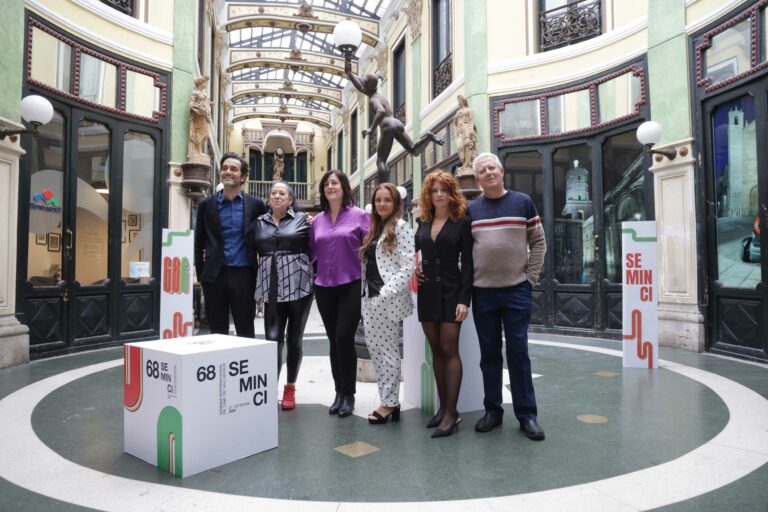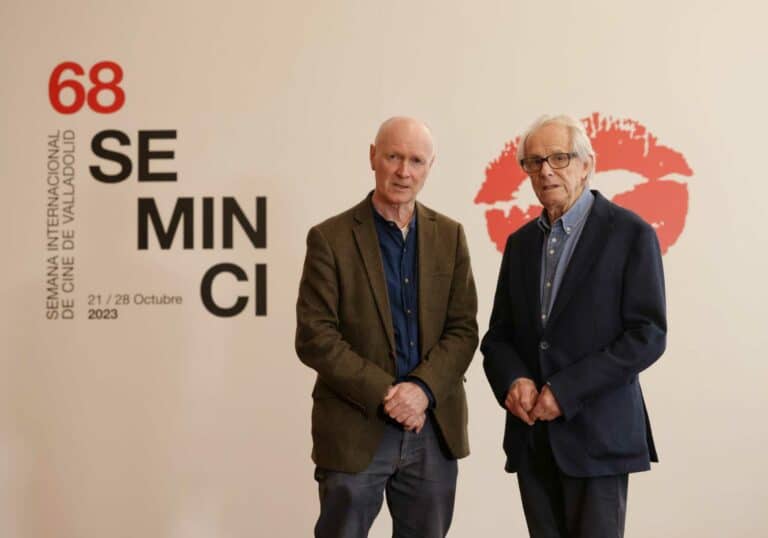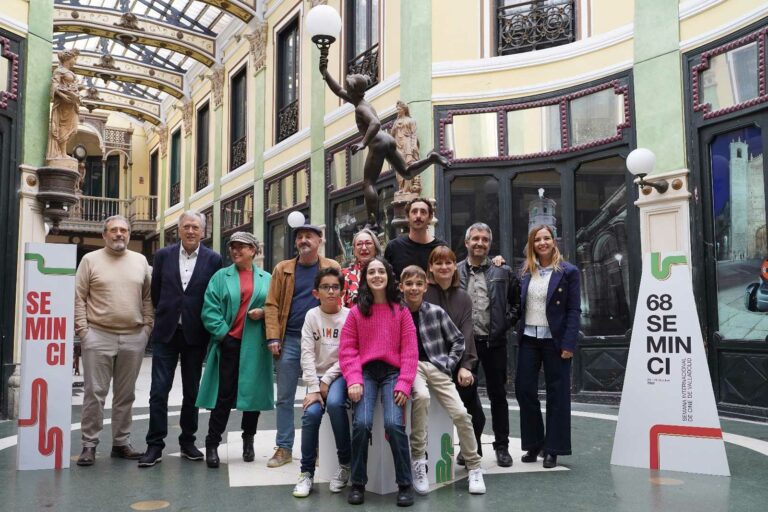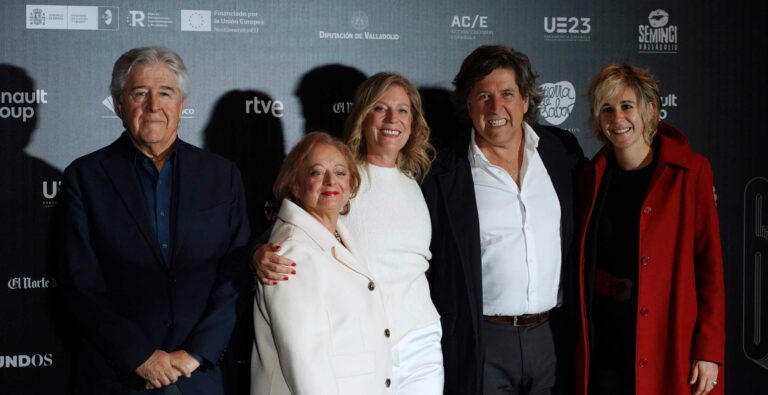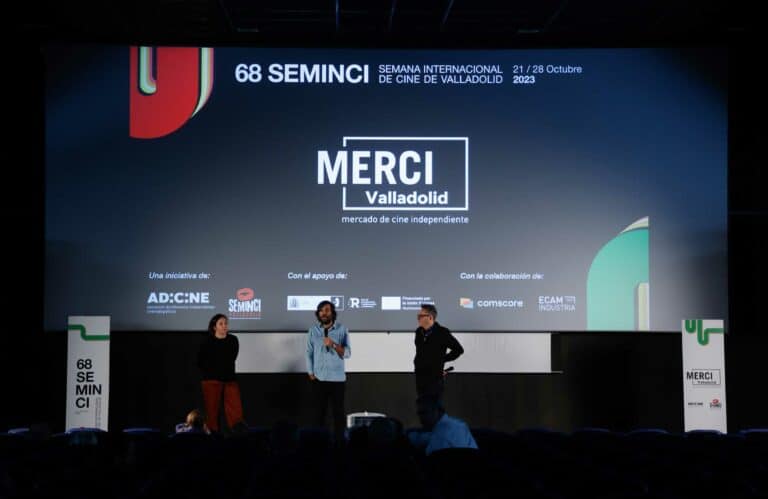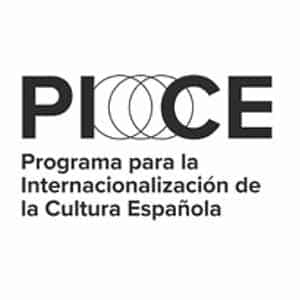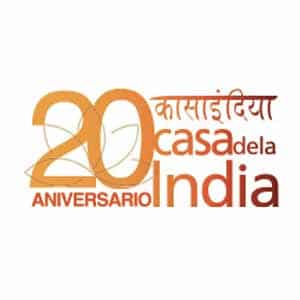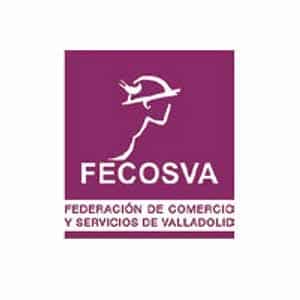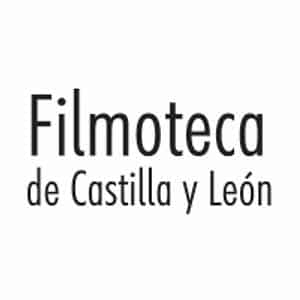- The section, dedicated to the Spanish documentary genre, will also screen feature-lengths that address current issues like the death of elderly people in nursing homes due to Covid19 or the list of tax defaulters
The cultural milieu and the work of artists from different disciplines are the subject matter of many of the films taking part in the DOC. España section of the Valladolid International Film Festival, exclusively dedicated to Spanish documentaries. The festival will program 17 titles -13 in competition and four out of competition- that will try to bag the prize (endowed with €6,000) for the director of the winning entry. In addition to cultural topics, the selected films share with the audience the life stories of figures such as the editor Vicente Miguel Carceller or the basketball player Mirza Delibašić, as well delving into current issues like the death of thousands of elderly people in nursing homes during the first months of the Covid19 pandemic.
The selected documentaries portray the lives of artists from different areas of culture: Algo salvaje. Bambino (Paco Ortiz) addresses the figure of Bambino, who during his lifetime recuperated flamenco music and brought it closer to the general public; Canogar, las formas el arte (Pepa G. Ramos), presented out of competition, deals with the life and work of Rafael Canogar, a fundamental painter in the history of 20th century Spanish art, and also with the lives of his children: Daniel, an avant-garde creator, and Diego, a meticulous sculptor; Elvira de Hidalgo. Donare la Divinità (Vicky Calavia), also screening out of competition, rescues from anonymity the figure of Elvira de Hidalgo, known for being María Callas’s teacher and pygmalion, but hardly recognized for her extraordinary singing skills; Escribir lo imposible (Simone G. Saibene) portrays the creative process undergone by Juan Tallón in writing his book ‘Rewind’; and Halffter, 90 compases (Juan Vicente Chuliá) draws a twilight portrait that eventually becomes a posthumous tribute to Cristóbal Halffter , one of the main compositional personalities of the last fifty years and a cultural and ethical model who recently passed away.
Other documentaries screening in DOC. España also revolve around culture: Camino incierto (Pablo García Pérez de Lara), which joins this section out of competition —the film hovers over the threshold where life and cinema intertwine and features testimonies of filmmakers like Lluís Miñarro, Pedro Costa or Apichatpong Weerasethakul; Until dawn (Horacio Alcalá), about the ballet Giselle, a masterpiece of Romantic dance theatre; The Forbidden Orange (Pedro González Bermúdez), about the premiere in 1975 at Valladolid’s Seminci of Stanley Kubrick’s film A Clockwork Orange (the film will screen out of competition); or Sigena’s dream (Jesús Garcés Lambert), the portrait of an astrophysicist born in Villanueva de Sigena, who decides to embark on the recreation of the Chapter House of the Sigena Monastery.
Republic and dictatorship
With the Republic and the Francoist dictatorship as background, DOC. España will show the documentaries Carceller. El hombre que murió dos veces (Ricardo Macián), which discloses part of a story of Vicente Miguel Carceller, an editor committed to the Republic whose weekly ‘La Traca’ connected with the common people and challenged the established power from 1909 to 1940,, when he was first executed and then silenced by Franco’s dictatorship; and A Virxe Roxa (Marcos Nine), which investigates the 1933 crime committed by Aurora Rodríguez, who shot dead her own daughter Hildegart, one of the most outstanding feminists of Spain’s Second Republic.
With biographical overtones, Shooting for Mirza (Juan Gautier) reconstructs through his children’s eyes the figure of national hero Mirza Delibašić, a European basketball legend of the 70s, who voluntarily remained with his people during the Sarajevo war instead of escaping, thus becoming a symbol for his country.
The section is complete with other documentaries that address current issues, like Breathe (Susanna Barranco), a film built around the personal relationships among the inmates of the Brians 1 penitentiary and the bond which these forge with the prison and with the space they are confined in; Hechos probados (Alejo Moreno), which tells the story of Agapito García Sánchez, the Spanish citizen who topped the first list of defaulters published by the Ministry of Finance in 2015; La muerte más cruel (Belén Verdugo), which probes into the deaths of more than 20,000 elderly people in nursing homes between March and June 2020 due to Covid19 and features the testimonies of relatives who lost their loved ones, the institutions’ workers and all sorts of experts, from jurists to psychologists; Posidonia (Adán Aliaga), which unveils for us the secrets of Posidonia, the longest living being on the planet, on the island of Tabarca; and El vent que ens mou (Pere Puigbert), which follows Remei, an old woman who has lived her whole life in a village in the north of Catalonia and has devoted herself mainly to her family.



